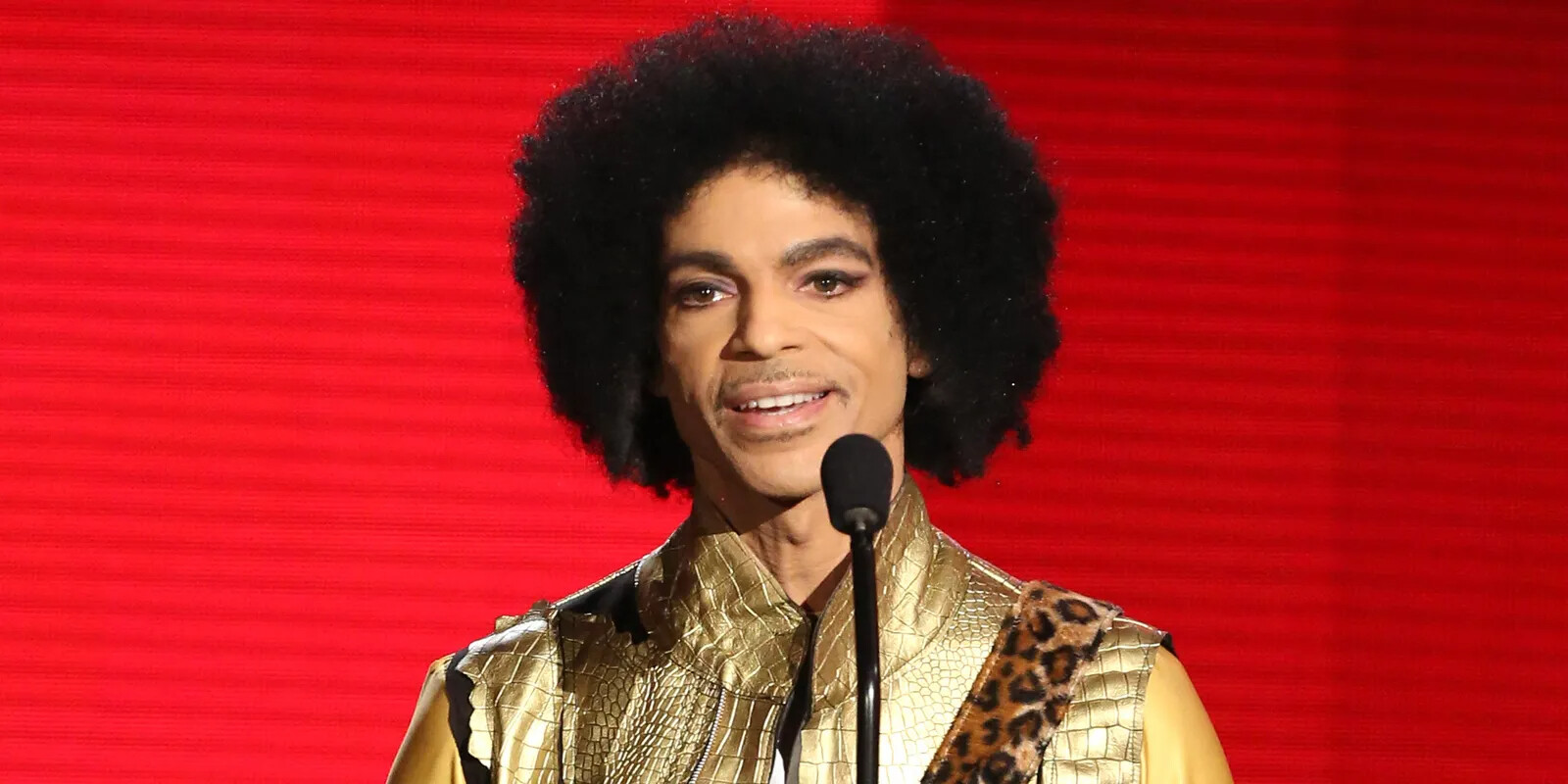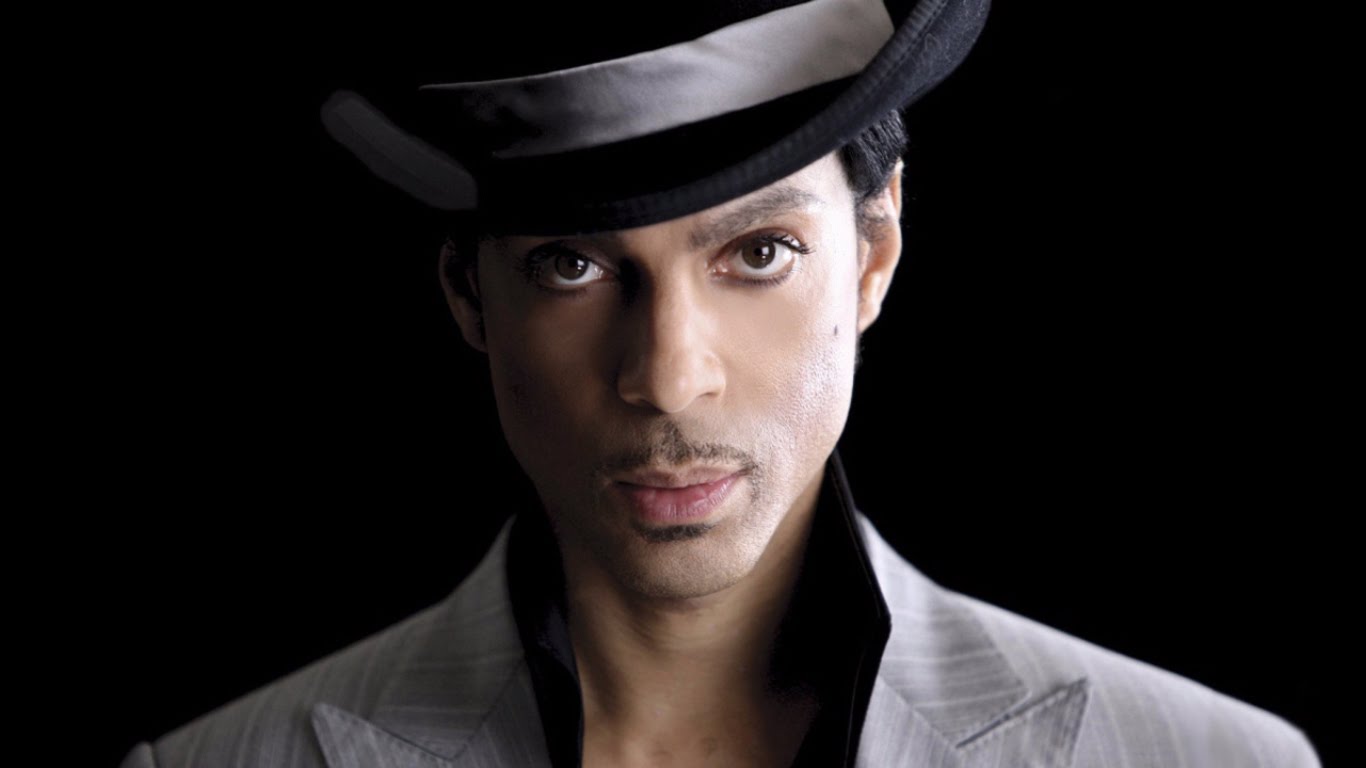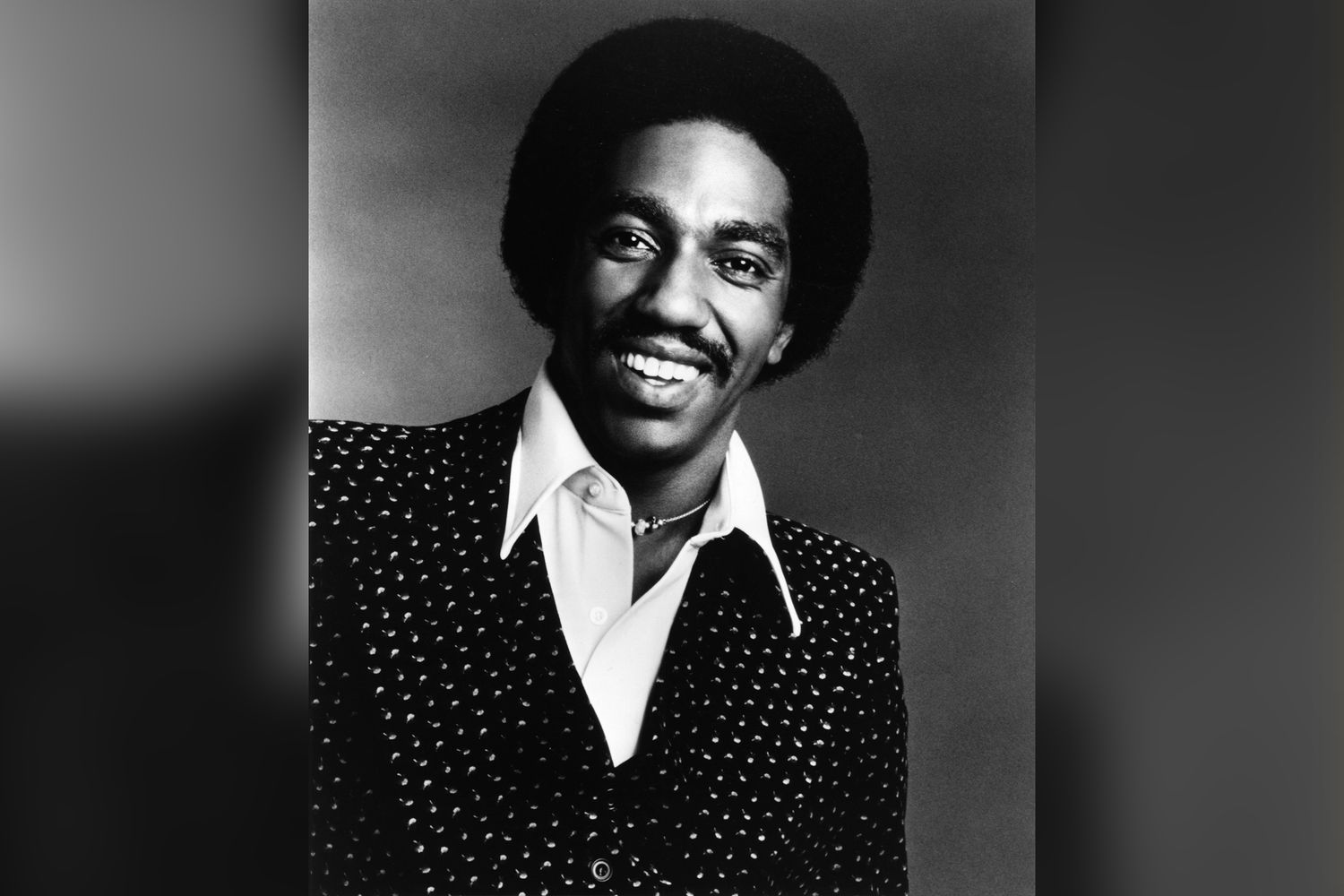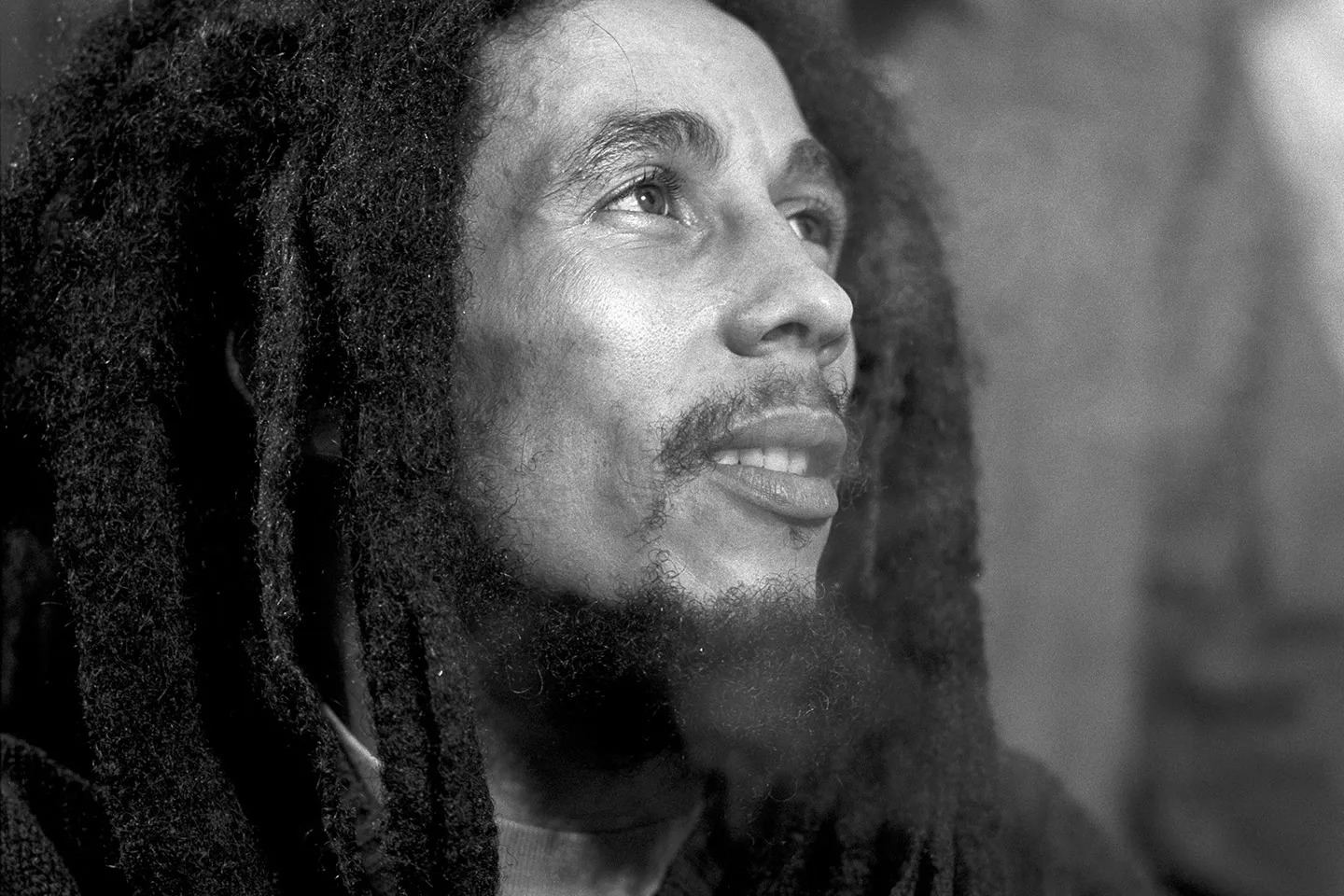Home>Production & Technology>Musician>How Did The Musician Prince Die
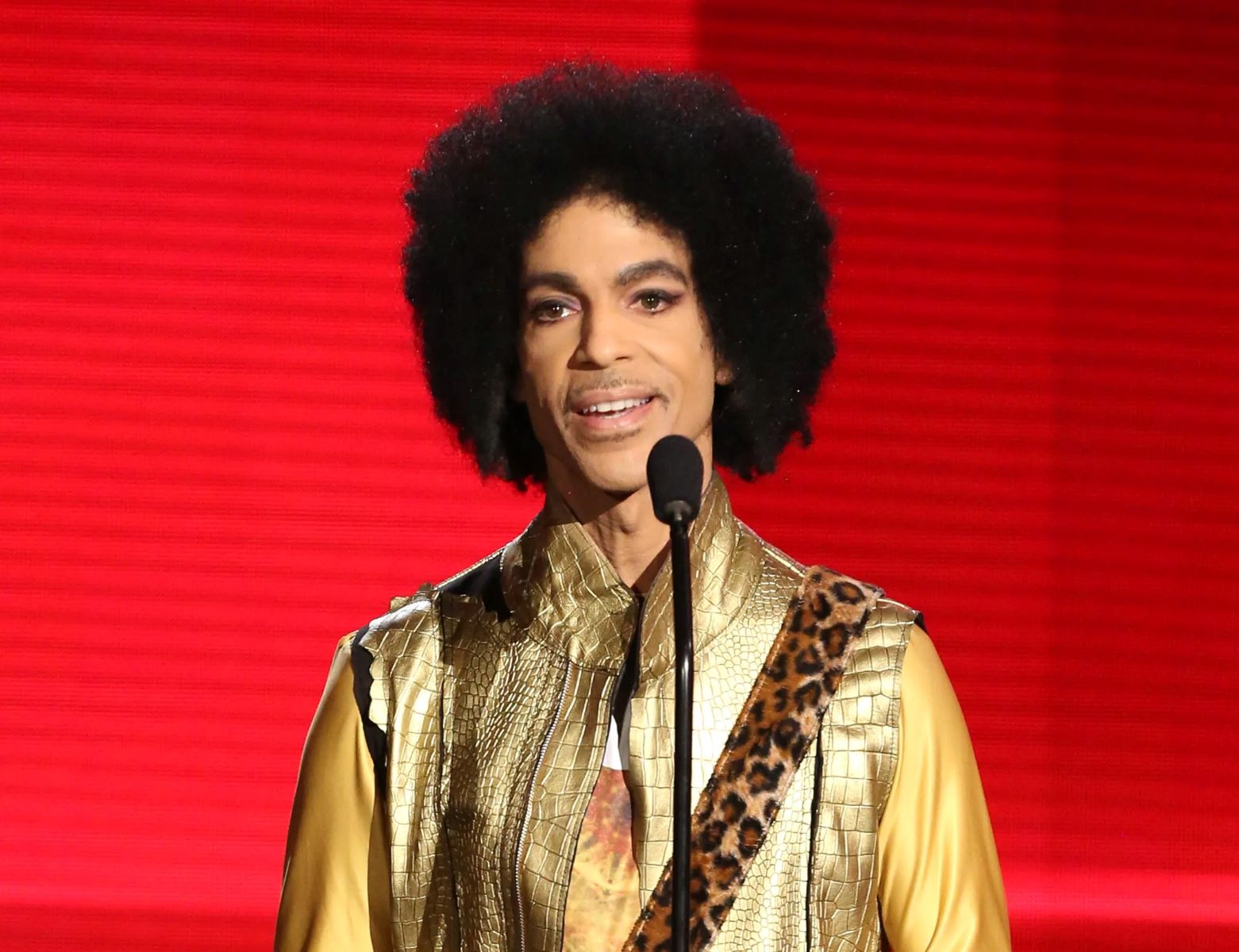

Musician
How Did The Musician Prince Die
Published: January 27, 2024
Discover the untimely death of legendary musician Prince and explore the circumstances surrounding his passing. Gain insights into the life and legacy of this iconic artist.
(Many of the links in this article redirect to a specific reviewed product. Your purchase of these products through affiliate links helps to generate commission for AudioLover.com, at no extra cost. Learn more)
Table of Contents
Introduction
Prince, the iconic musician known for his genre-defying music and flamboyant style, left behind a legacy that continues to resonate with fans around the world. His untimely death on April 21, 2016, shocked the music industry and left many wondering about the circumstances surrounding his passing. This article delves into the mysterious death of Prince and explores the events leading up to his demise.
With a career spanning over four decades, Prince was a true musical genius. He captivated audiences with his virtuosic guitar skills, soulful vocals, and thought-provoking lyrics. From his breakout album, Purple Rain, to hits like “Kiss,” “When Doves Cry,” and “Little Red Corvette,” Prince redefined the boundaries of popular music.
Despite his musical genius, Prince was no stranger to controversy. He was a fiercely private individual, known for his enigmatic persona and reluctance to conform to societal norms. His battle to maintain artistic control over his music, symbolized by his name change to an unpronounceable symbol, made headlines and cemented his reputation as a boundary-pushing artist.
Prince’s death came as a shock to the world, leaving an enormous void in the music industry. It ignited a wave of mourning and tributes from fans and fellow musicians alike, who recognized his immense talent and unique contributions to the world of music.
This article will delve into the details surrounding the mysterious death of Prince, exploring the initial reports and speculations, the eventual revelation of the cause of death, the investigation and autopsy findings, and the legal consequences and lawsuits that followed. Additionally, it will shed light on Prince’s health issues and the role they may have played in his untimely demise.
Join us as we unravel the mystery surrounding the death of the legendary musician and pay tribute to the remarkable legacy left behind by the one and only Prince.
Background of Prince
Prince Rogers Nelson, known simply as Prince, was born on June 7, 1958, in Minneapolis, Minnesota. From a young age, it was evident that Prince possessed extraordinary musical talent. He started playing piano at the age of 7 and soon picked up other instruments, such as the guitar and drums.
As a teenager, Prince formed his first band, called Grand Central. It was during this time that he honed his songwriting skills and began experimenting with various musical styles, including funk, rock, and R&B.
In 1978, Prince signed a record deal with Warner Bros. and released his debut album, “For You.” While it received positive reviews from critics, it was his next album, “Prince” (1979), that catapulted him into the spotlight. The album produced his first hit single, “I Wanna Be Your Lover,” and showcased his ability to seamlessly blend different genres to create a unique sound.
Throughout the 1980s, Prince continued to release groundbreaking albums, such as “Dirty Mind” (1980), “Controversy” (1981), and the critically acclaimed “1999” (1982). With the release of “Purple Rain” (1984), both the album and the accompanying film, Prince solidified his status as a pop culture icon. The album garnered him international fame and earned him two Grammy Awards.
Prince’s distinctive style and flamboyant stage presence made him a magnetic performer. His androgynous fashion choices, including his signature ruffled shirts and high-heeled boots, challenged traditional gender norms and inspired countless artists.
Beyond his solo career, Prince collaborated with numerous musicians and bands, including The Revolution and The New Power Generation. He also produced and wrote songs for other artists, such as Sheila E., The Time, and The Bangles, showcasing his versatility as a musician.
Despite his immense success, Prince remained fiercely protective of his musical artistry. In the 1990s, he engaged in a highly publicized battle with his record label, Warner Bros., leading to his decision to change his name to an unpronounceable symbol, often referred to as “The Artist Formerly Known as Prince.” This symbol served as a protest against the restrictions imposed on him by the music industry.
Throughout his career, Prince released dozens of albums and sold over 100 million records worldwide. He received numerous accolades, including seven Grammy Awards, a Golden Globe Award, and an Academy Award for his original song “Purple Rain.”
Prince’s impact on popular music is immeasurable. His boundary-pushing creativity, mastery of multiple instruments, and unparalleled stage presence solidify his status as one of the greatest musicians of all time.
The Mysterious Death of Prince
On the morning of April 21, 2016, news broke that Prince had been found unresponsive in an elevator at his Paisley Park estate in Chanhassen, Minnesota. The sudden and tragic nature of his death sent shockwaves throughout the world, leaving fans devastated and longing for answers.
Initially, details surrounding Prince’s death were scarce, fueling speculation and rumors. As the world mourned the loss of an icon, questions swirled about what could have led to such a sudden demise. The mysterious circumstances surrounding his death only added to the intrigue.
One of the factors contributing to the mystery was the fact that Prince was known for his disciplined lifestyle. He was a devout Jehovah’s Witness and abstained from drugs and alcohol. His commitment to his health and artistic vision made his death even more perplexing.
Rumors circulated that Prince may have passed away due to a drug overdose, as prescription pain medication was reportedly found at his Paisley Park estate. However, these allegations remained unconfirmed until the official investigation provided more clarity.
The death of a beloved celebrity often attracts scrutiny and can spark conspiracy theories. Prince’s death was no exception, with various theories floating around regarding foul play and hidden agendas. However, it is important to separate fact from speculation and rely on verified information to understand the truth behind his untimely passing.
The circumstances surrounding Prince’s death were further shrouded in mystery due to his fiercely private nature. He kept a tight control over his personal life, often avoiding the media spotlight and providing limited insight into his struggles and health issues.
As the world grappled with the shocking news of Prince’s death, the attention turned towards uncovering the truth. The investigation into his passing would soon shed light on the events leading up to that fateful day and provide a clearer understanding of what caused the demise of this musical legend.
Join us as we dig deeper into the initial reports and speculations surrounding Prince’s death, find out how the cause of death was eventually revealed, explore the investigation and autopsy findings, and analyze the role of prescription medication in this tragic event. Unravel the enigma behind the mysterious death of Prince as we seek to honor his life and musical legacy.
Initial Reports and Speculations
Following the news of Prince’s sudden death, initial reports and speculations circulated, attempting to shed light on what might have caused such a tragedy. The lack of concrete information in the early stages led to a range of theories and rumors.
One of the earliest speculations centered around the possibility of a drug overdose. Reports emerged that Prince had been dealing with persistent pain issues and had been prescribed medication to manage it. Prescription painkillers, specifically opioids, were rumored to have been found at his Paisley Park estate.
This revelation fueled speculation that Prince may have accidentally taken too much medication or mixed it with other substances, resulting in a fatal overdose. The connection between opioid abuse and the entertainment industry, particularly the music scene, added weight to this theory.
Another theory that emerged in the aftermath of Prince’s death was the impact of his rigorous schedule and dedication to his craft. Throughout his career, Prince was known for his intense work ethic, often spending long hours in the recording studio and performing energetic live shows.
Some speculated that the physical and mental strain of his demanding lifestyle may have contributed to health issues that ultimately led to his untimely demise. The toll of years of non-stop creativity and the pressure to maintain his legendary status could have taken a toll on his well-being.
Conspiracy theories also began to surface, suggesting foul play or a deliberate attempt to silence Prince. These speculations, though lacking substantial evidence, gained attention due to the mysterious aura surrounding his death and the secrecy that often surrounded his personal life.
While initial reports and speculations cast a shadow of doubt over the exact circumstances of Prince’s death, it was clear that something tragic and unexpected had occurred. The world awaited official information and investigations to provide a more definitive understanding of what transpired on that fateful day.
As we delve deeper into the details surrounding Prince’s passing, the next section will explore the eventual revelation of the cause of death and shed light on the investigations and autopsy findings that emerged in the aftermath.
Cause of Death Revealed
After weeks of speculation and uncertainty, the cause of Prince’s tragic death was eventually revealed. On June 2, 2016, the Midwest Medical Examiner’s Office released an official statement stating that the prolific musician had died from an accidental overdose of the powerful opioid medication, fentanyl.
Fentanyl is an incredibly potent synthetic opioid often used in medical settings to treat severe pain, especially in cases where other opioids have proven to be ineffective. It is significantly more potent than drugs like morphine or oxycodone, making it particularly dangerous when misused or taken without a prescription.
The revelation of fentanyl as the cause of Prince’s death added a layer of shock to the already tragic circumstances. Fentanyl’s involvement shed light on the severity of the opioid crisis that has plagued the United States and beyond.
It was determined that Prince had unknowingly taken counterfeit pills containing fentanyl. These pills were believed to have been obtained illegally and were mislabeled as a common pain medication, contributing to the accidental overdose.
The investigation revealed that Prince had been struggling with chronic pain issues and had sought medical attention in the days leading up to his death. It was during this time that he was reportedly prescribed medications to manage his discomfort.
The tragic irony lies in the fact that Prince, who was known for his aversion to drugs and his commitment to living a clean lifestyle, fell victim to an unforeseen and deadly encounter with a powerful opioid.
News of the cause of Prince’s death brought renewed attention to the dangers of opioid misuse and highlighted the need for increased awareness, education, and intervention in addressing the widespread opioid epidemic.
The revelation of fentanyl as the cause of Prince’s death also raised questions about how this lethal drug made its way into the counterfeit pills he unknowingly ingested. It led to further scrutiny of the illegal drug market and the measures needed to prevent such tragedies in the future.
As the world mourned the loss of the musical legend, the cause of death provided some answers, but it also underscored the complex and multidimensional issue of opioid misuse, providing an opportunity to foster discussions about addiction, pain management, and the importance of seeking proper medical guidance.
In the following sections, we will delve deeper into the investigation and autopsy findings that shed more light on the circumstances surrounding Prince’s death, ultimately leading to a better understanding of the tragic events that unfolded on that fateful day.
Investigation and Autopsy Findings
Following the shocking death of Prince, a thorough investigation was conducted to understand the circumstances surrounding his untimely passing. The autopsy, along with other investigative efforts, aimed to shed light on the events leading up to his death.
An autopsy is a medical examination performed to determine the cause of death. In Prince’s case, the Midwest Medical Examiner’s Office in Minnesota conducted a comprehensive autopsy shortly after his passing. The results of the autopsy, combined with additional evidence gathered during the investigation, provided valuable insights into the musician’s final moments.
The autopsy report revealed that Prince’s body showed no signs of external trauma, suggesting that foul play was unlikely. The focus then turned inward, examining the internal factors that may have contributed to his demise.
One of the key findings of the autopsy was the presence of fentanyl, a powerful opioid, in Prince’s system. The toxicology report confirmed that the level of fentanyl in his blood was significantly higher than therapeutic levels, confirming the role of the drug in his accidental overdose.
Additionally, other substances were found in his system, including the opioid painkiller hydrocodone and the sedative alprazolam (commonly known as Xanax). These findings indicated the presence of other prescription medications that Prince had either been prescribed or obtained, leading to speculation about potential drug interactions.
The investigation sought to determine how Prince acquired the counterfeit pills containing fentanyl. It was discovered that a close associate of Prince’s had obtained the pills, believing they were authentic prescription medication. However, the pills were found to be counterfeit, highlighting the dangers associated with illegally obtained drugs.
As part of the investigation, authorities also interviewed friends, family members, and associates of Prince to gain a deeper understanding of his health and any potential addiction issues. It was revealed that Prince had been struggling with chronic pain from years of performing and had sought medical help to manage his discomfort.
The investigation did not result in criminal charges, as it was determined that Prince had unknowingly taken the counterfeit pills and no evidence was found to suggest anyone had intentionally supplied him with the lethal drugs.
The autopsy and subsequent investigation provided crucial information about the events leading up to Prince’s death, uncovering the presence of fentanyl and shedding light on his struggles with chronic pain. These findings not only offered a clearer understanding of the factors contributing to his overdose but also further highlighted the dangers and complexities of substance misuse and the need for improved regulation and education surrounding prescription medications.
In the following sections, we will explore the role of fentanyl in Prince’s death and delve into his health issues, examining how they may have played a part in this tragic event.
The Role of Fentanyl
The presence of fentanyl in Prince’s system played a pivotal role in his tragic and untimely death. Fentanyl is an incredibly potent synthetic opioid that is up to 100 times stronger than morphine. It is typically prescribed to manage severe pain, such as that experienced by cancer patients or individuals undergoing major surgeries.
However, fentanyl has also become a drug of abuse due to its intense euphoric effects. It is frequently produced illegally and sold on the streets, often mixed with other substances or used to counterfeit prescription pain medications.
The use of counterfeit pills is particularly dangerous as the dosage of fentanyl within them can vary significantly and is often higher than what an individual can safely tolerate. This increases the risk of overdose, as the potency of the drug is greater than what the user may expect.
In Prince’s case, the autopsy revealed that he had unknowingly taken counterfeit pills containing fentanyl, mistakenly thinking they were a different pain medication. The high levels of fentanyl in his blood caused a fatal overdose, highlighting the deadly consequences of this potent opioid.
The involvement of fentanyl in Prince’s death brought to the forefront the alarming rise of opioid-related deaths and the urgency to address the opioid crisis. It underscored the dangers associated with opioid misuse, whether through illegal drugs or the misuse of prescription medications.
Prince’s story served as a wake-up call, drawing attention to the importance of proper prescribing practices, education about the risks of opioids, and the need for improved access to addiction treatment and support services.
Following his death, the music industry and medical community alike have become more cognizant of the risks associated with opioids. Efforts to raise awareness of the dangers of fentanyl and opioids, as well as to provide resources for addiction treatment and harm reduction, have increased in response to this tragedy.
The role of fentanyl in Prince’s death serves as a powerful reminder of the devastating impact of opioid misuse and the urgent need for preventative measures, education, and support systems to combat this public health crisis.
In the upcoming sections, we will delve into Prince’s health issues and explore how they may have influenced his relationship with prescription medications and ultimately contributed to his tragic overdose.
Prince’s Health Issues
Throughout his life, Prince battled various health issues that may have played a significant role in his untimely death. While he projected an image of vitality and energy on stage, behind the scenes, the musician struggled with chronic pain and other health challenges.
One of Prince’s well-documented health issues was his struggle with chronic hip pain. He had undergone hip replacement surgery in 2010, which was attributed to years of strenuous performances and vigorous dance routines. The intense physical demands he placed on his body took a toll, resulting in ongoing discomfort and limited mobility.
Prince’s chronic pain led him to seek medical attention and treatment. Reports indicated that in the days leading up to his passing, he had been consulting with healthcare professionals to manage his pain. It was during this time that he was reportedly prescribed prescription pain medication, including opioids.
While Prince was known for his discipline and adherence to a clean lifestyle, his health challenges may have driven him to rely on prescription medications to alleviate his suffering. The use of such medications to manage chronic pain can be a double-edged sword, offering relief on the one hand but also carrying the risk of dependence and potential misuse.
It is important to note that Prince’s reliance on prescription medications did not make him immune to the dangers posed by counterfeit pills and the illicit drug market. The revelation that he unknowingly ingested counterfeit pills containing fentanyl highlights the unpredictable nature of such substances and the grave risks associated with their use.
Prince’s health issues highlight the broader issue of managing chronic pain in the context of opioid prescriptions. Many individuals, including musicians and performers, may face similar challenges and seek relief through medication. However, there is a delicate balance between pain management and avoiding the risks of dependence and overdose.
The circumstances surrounding Prince’s health issues and the medications he used underscore the need for comprehensive pain management strategies that consider alternative therapies, non-opioid medications, and addiction prevention measures.
As we continue to explore the impact of Prince’s health issues, we will delve into the legal consequences and lawsuits that followed his tragic death, shedding light on the complexities surrounding accountability in such cases.
Legal Consequences and Lawsuits
Following the revelation of Prince’s cause of death and the presence of fentanyl in his system, legal consequences and lawsuits emerged in the wake of this tragic event.
One of the notable legal consequences was the criminal investigation into the circumstances surrounding Prince’s death. Law enforcement agencies sought to determine how the counterfeit pills containing fentanyl made their way to the musician’s possession. The investigation included examining potential suppliers, distributors, and any individuals who may have played a role in the procurement of the lethal drugs.
Ultimately, no criminal charges were filed in connection with Prince’s death. It was determined that he had unknowingly taken the counterfeit pills, and no evidence was found to suggest intentional wrongdoing by any specific individuals involved.
However, the lack of criminal charges did not preclude civil litigation. Several individuals, including Prince’s family members, filed wrongful death lawsuits against various parties, alleging negligence in the supply and distribution of the counterfeit pills that led to his fatal overdose.
These lawsuits targeted both individuals and entities, including medical professionals, pharmacies, and individuals involved in the illicit drug trade. The goal was to hold accountable those believed to have contributed to the availability and distribution of the lethal drugs that tragically ended Prince’s life.
The lawsuits highlighted the importance of addressing the illicit drug market and ensuring accountability for those involved in the production and distribution of counterfeit drugs containing dangerous substances.
The legal consequences and lawsuits surrounding Prince’s death brought attention to the broader issue of responsibility within the drug supply chain. They prompted discussions about the need for increased regulation and oversight to prevent the circulation of counterfeit drugs and illicit substances.
While no legal outcome can ever fully heal the loss felt by Prince’s family, the lawsuits aimed to shed light on the circumstances surrounding his death and seek some form of justice for the tragic loss of a beloved musician.
In the next section, we will explore the enduring legacy of Prince, celebrating his contributions to the music industry and the impact his artistry continues to have on fans and fellow musicians.
Legacy of Prince
Prince’s legacy as a musician is nothing short of extraordinary. His innovative sound, genre-blurring music, and captivating stage presence left an indelible mark on the music industry and continue to inspire artists across the globe.
Prince’s ability to effortlessly blend multiple genres, including funk, rock, R&B, and pop, made him a true musical trailblazer. His unique sound and style challenged traditional norms and pushed the boundaries of what was considered mainstream music.
His breakthrough album, “Purple Rain,” solidified his status as an icon. The album’s success showcased Prince’s exceptional songwriting skills, exceptional guitar playing, and his ability to create music that resonated with a diverse audience. It earned him two Grammy Awards and an Academy Award for the film of the same name.
Prince’s influence extended far beyond his own music. He wrote and produced songs for other artists, such as “Manic Monday” by The Bangles and “Nothing Compares 2 U” by Sinead O’Connor, which further showcased his versatility and songwriting prowess.
His electrifying live performances became legendary, with Prince known for his high-energy concerts, impressive guitar solos, and magnetic stage presence. He was a true showman, captivating audiences with his charisma and sheer musical brilliance.
Beyond his musical talent, Prince was a champion for creative freedom and took a stand against the music industry’s constraints. His decision to change his name to an unpronounceable symbol and his battles with record labels showcased his tenacity and fierce determination to maintain control over his art.
Prince’s influence continues to reverberate through contemporary music. His songs are timeless classics that resonate with new generations, showcasing the enduring power of his music. His impact can be heard in the work of artists across various genres, from Bruno Mars and Lizzo to D’Angelo and Janelle Monáe.
Prince’s legacy goes beyond his musical contributions. He was an advocate for social justice, using his platform to promote racial equality and cultural understanding. Through his artistry, he championed individuality and celebrated the beauty of diversity.
The Prince Estate continues to honor his legacy, releasing posthumous albums, archival recordings, and previously unreleased material. These releases allow fans to continue to experience the brilliance of his music and provide a glimpse into the depth of his creativity.
In the years since his passing, tributes to Prince have been held around the world, highlighting the lasting impact he had on the lives of his fans. His influence as a musician, style icon, and cultural icon remains as strong as ever, serving as a testament to his unparalleled artistry.
The legacy of Prince will forever remain a testament to his musical genius, his fearlessness in pushing boundaries, and his unwavering commitment to his craft. He will always be remembered as one of the greatest musicians of all time, whose spirit and music continue to inspire and captivate audiences worldwide.
Conclusion
The passing of the legendary musician Prince left an indelible mark on the music world, forever altering the landscape of popular music. His death was shrouded in mystery and brought to light the devastating consequences of the opioid crisis.
Throughout his groundbreaking career, Prince showcased his unparalleled musical talent, captivating audiences with his electrifying performances and genre-defying sound. His legacy as a musician and an icon remains undiminished, and his influence continues to resonate with fans and fellow artists.
The revelation of the role of fentanyl in Prince’s death shed a spotlight on the dangerous consequences of opioid misuse. It raised awareness about the prevalence of counterfeit drugs and the urgent need for improved regulation and education surrounding prescription medications.
Prince’s health issues, including chronic pain, added another layer of complexity to the tragedy. It underscored the delicate balance between pain management and the risks associated with opioid use, sparking discussions around alternative therapies and comprehensive pain management strategies.
The legal consequences and lawsuits surrounding his death provided a forum for accountability and highlighted the need for increased oversight in the drug supply chain to prevent the circulation of counterfeit drugs.
Despite the circumstances surrounding his passing, Prince’s enduring legacy shines brightly. His artistic genius, his commitment to creative freedom, and his advocacy for social justice continue to inspire generations of musicians and fans alike.
Through his boundary-pushing music, distinctive style, and unwavering individuality, Prince left an indelible mark on the world. His impact transcends genres and cultural barriers, serving as a reminder of the power of art to challenge norms and ignite change.
As we continue to celebrate and honor the legacy of Prince, we must also learn from the tragic events surrounding his death. We must strive to address the opioid crisis, promote responsible pain management practices, and ensure access to addiction treatment and support services for those in need.
Prince’s music will forever echo through time, a testament to his unparalleled talent and the transformative power of his art. May we carry his spirit of creativity, individuality, and love for music, using it to inspire and uplift others for generations to come.

